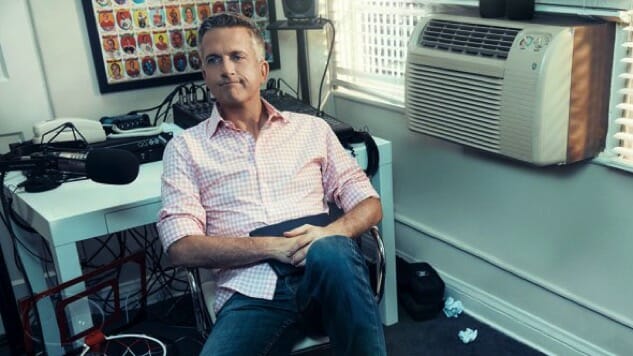Why is Bill Simmons Getting Away with the Mess of Any Given Wednesday?

If you have a reason to care about such things, the ongoing war of words between Bill Simmons and his former employer ESPN has been a fascinating thing to witness. On one side, you have a deposed writer and on-air personality who claims that he was shown the door because of his unfiltered comments about Roger Goodell, commissioner of the NFL, and his handling of the Ray Rice debacle. On the other other, you have a brand whose president John Skipper told the New York Times that they booted Simmons for “his repeated lack of respect for this company and, more importantly, the people who work here.”
Both sides are right. A media personality talked out of turn knowing he was going to ruffle feathers and make headlines, and his employers responding in kind, if a little petulantly. But the most important thing is that Simmons was aware of both consequences and potential benefits of his actions. Just a few weeks after his departure from “The Worldwide Leader In Sports” was made public, he came striding out like a grinning new parent with a lucrative, multi-platform partnership with HBO cradled in his arms.
I’m one of the suckers who had high hopes for this arrangement. I knew how much Simmons was working the angles to keep himself and his brand in the public eye, yet, I was also a fan of his writing, his hiring of other smart scribes and thinkers over at Grantland (and now The Ringer), and, admittedly, his love of the Boston Red Sox. So, I take little pleasure in joining the chorus of voices who are proclaiming Any Given Wednesday, his first TV foray with his new employer, an absolute dud.
The original sin with AGW is that Simmons somehow believed that he could just take the things that made him famous—his writing and his podcast—and translate it into TV form without any consideration of the format’s needs or voice. The four episodes he has produced to date have only proven how foolhardy that thinking was.
His rants about the current sports landscape that open and close every show were clearly not conceived with a TV audience in mind. Even with the splashy visuals and clips threaded into each one, they still sound like he’s reading edited excerpts from his blog with stilted wordplay and the spoken equivalent of those floating footnotes that accompanied every Grantland piece. His interviews, too, seem built more for podcast subscribers rather than folks paying for HBO. They’re as casual as Simmons’ on-air wardrobe, wandering down discursive pathways and stopping to admire their own brilliance.
-

-

-

-

-

-

-

-

-

-

-

-

-

-

-

-

-

-

-

-

-

-

-

-

-

-

-

-

-

-

-

-

-

-

-

-

-

-

-

-








































